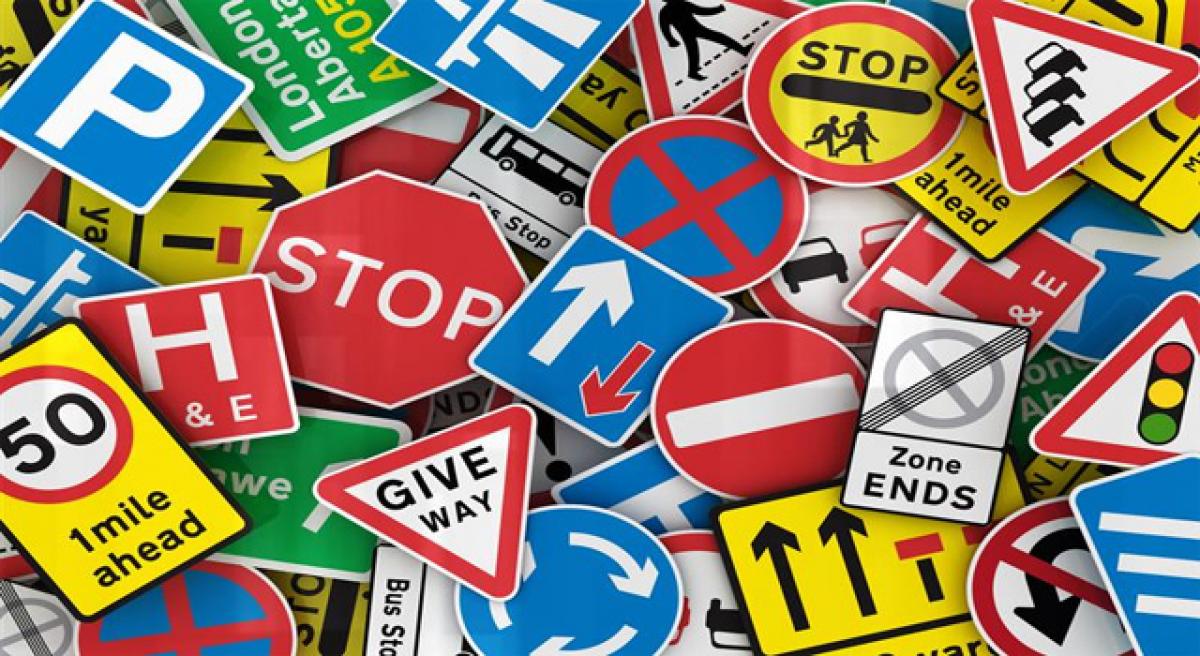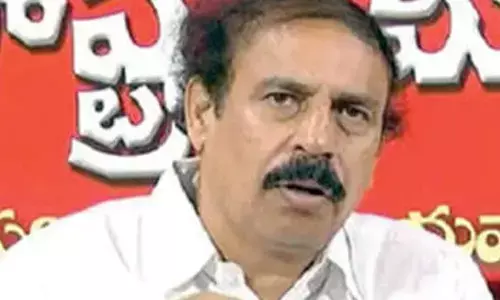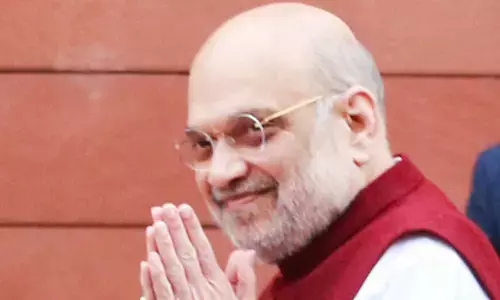Making roads safe

Some things simply don’t change. This is more so when it comes to policy-makers, who remain oblivious of tragedies that take a heavy toll of human lives, day in and day out. To cite one such tragic incident, 10 people died and 16 others were critically hurt when a speeding private bus rammed into the railings of a bridge and fell into a canal at Nayakangudem near Khammam on Monday.
Some things simply don’t change. This is more so when it comes to policy-makers, who remain oblivious of tragedies that take a heavy toll of human lives, day in and day out. To cite one such tragic incident, 10 people died and 16 others were critically hurt when a speeding private bus rammed into the railings of a bridge and fell into a canal at Nayakangudem near Khammam on Monday.
Alas more than the tragedy itself, what makes it rather pitiable is that it was the same stretch that had seen a gruesome incident on June 24. Yes, the shocking official apathy led to the second accident in two months. It is quite vulnerable in that there are no warning signboards at the spot and the bridge is quite narrow.
Alas! Road safety is not an integral part of our road and bridge systems. Nor does it figure prominently in the priority areas of the officials. The recent World Trauma Congress at New Delhi and National Road Safety workshop at Visakhapatnam noted that road traffic injuries were among three leading causes of death for people in the 5-44 years age-group in the country. It is costing the nation dearly with a loss of up to 3 per cent of GDP.
The 'Road accidents in India-2015' report states that the total number of road accidents rose by 2.5 per cent from 4,89,400 in 2014 to 5,01,423 in 2015 with the toll rising by an alarming 4.6 per cent during the period. And New Delhi had the audacity to state at Brasilia Declaration that it would initiate measures whereby road accidents and fatalities would be reduced by 50 per cent by 2020.
With time running out, there is a compelling need to sensitise people, particularly the police personnel. Recently, a person bled to death on a Delhi road, with no one caring to rush him to hospital. It may be recalled that on March 5, the Supreme Court ordered the Centre to frame guidelines for encouraging Good Samaritans to report on accidents and save victims. Doctors were to be found guilty of professional misconduct if they denied victims immediate treatment.
As if taking a cue, the Centre approved a National Road Safety Policy on August 8, detailing road safety infrastructure. What is needed is mandating emergency medical services right from the injury site till hospitalisation. A World Health Organisation report has damned India and pointed to lack of common emergency number in the country.
On July 28, the Lok Sabha was informed that the total number of persons killed in road mishaps under the influence of alcohol was 6,755 in 2015. It may be a major remedy of liquor outlets must be denied permission near State or national highways.
The Motor Vehicle (Amendment) Bill 2016 proposes hefty penalties for violation of road safety rules. However, a general strike is called for on September 2 by unions, fearing privatisation of public transport bodies. A life-saving legislation is thus at stake because of needless issues being brought in.




